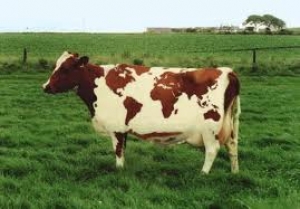Technical Support

“Testing and monitoring herds for trichomoniasis is the best method of controlling this infection,” said State Veterinarian, Dr Keith Roehr.
“Cattle owners should talk to their veterinarian to determine the best management practices for their herd.”
- As of 28 September, 2011, there are four positive “trich” locations in Colorado.
- So far this year, there have been positive trich cases in eight Colorado counties: Baca, Bent, Conejos, Costilla, Custer, La Plata, Las Animas, and Otero.
- A map detailing trichomoniasis sample submissions by county and the prevalence for trichomoniasis-positive counties can be found at www.colorado.gov/ag.
“The Department has seen a decrease in the number of positive trich cases and is encouraged by these numbers; this shows that the livestock industry and the CDA mitigation efforts have been working,” continued Dr Roehr, “but this doesn’t mean ranchers should decrease their testing rates. It is important to remember that this infection does not respect county lines.”
“Trich” is a costly, yet preventable, infection that can affect dairy and beef cattle. If bulls become infected, the percentage of open cows can increase from five to 30 per cent.
Trich is a venereal disease of cattle caused by Trichomonas foetus (T. Foetus). The T. foetus infection causes fertility problems, such as early embryonic death or abortion of the calf, and is asymptomatic in bulls.
Colorado trich regulations require all non-virgin bulls changing ownership or being transported into Colorado be tested for T. foetus unless the animal is going to slaughter. Bulls on public land grazing permits or with grazing associations must also be tested prior to turn-out.
Several diagnostic laboratories across the state offer trich testing; samples must be taken by an accredited veterinarian. For testing questions call CDA Animal Industry Division at (303) 239-4161.






















